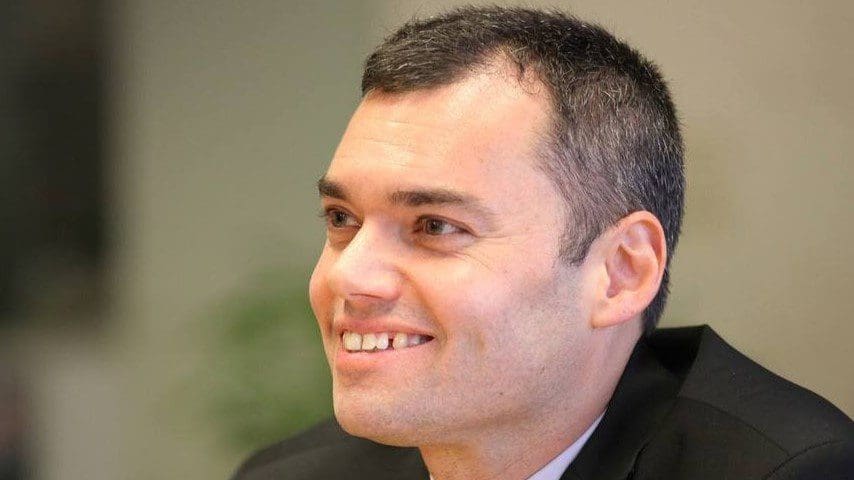Liberal anti-Zionist Peter Beinart —a long time critic of everything that involves in a positive context the words ‘Israel’ and ‘Zionism’, but does not involve the word ‘Palestinian’—has recently penned a long op-ed in The New York Times, a newspaper that does not cover antisemitic atrocities committed a few corners from its editorial office, yet regularly lectures Israelis, Brazilians or Hungarians on how to run their respective countries.
This time Beinart allowed his emotions to take the better of him,
advocating for nothing less than the demolishing of Israel’s Jewish nature,
scapegoating it as the primary obstacle to peace in the Holy Land. This reasoning strongly echoes the views of anti-Semites, who also argue that Israel can never be a democracy because of its Jewish character. Their argument goes something like this: Jews are incapable of running a country and, because they don’t want to work, they can only survive by oppressing non-Jews. This view, incidentally, also appeared in German propaganda in the 1930s.
Beinart apparently thinks that because he is strengthening the camp of the self-proclaimed ‘liberal democrats’—actually more liberals than democrats—he can write anything. It is therefore necessary to make it clear that there is a limit: to call on Israel to give up its Jewish character and to sit down at the negotiating table with terrorists not only shows a strong antipathy to the Jewish people, but ignores and belittles all the Jewish victims who have given their lives in the war on terror.
‘By including Palestinians as full partners, Israel’s democracy movement will discover a vast reservoir of new allies and develop a far clearer moral voice. Ultimately, a movement premised on ethnocracy cannot successfully defend the rule of law. Only a movement for equality can,’ Beinart writes.
But who exactly should Israel include as ‘full partners?’
Hamas, Hezbollah or the Islamic Jihad movement, terrorist organisations which have not only claimed the lives of countless Israeli citizens, but also massacred liberal and democratic Palestinians, the very group of Arabs Beinart believes he speaks up for?
Perhaps Beinart wants Benjamin Netanyahu to sit down with Fatah. It is challenging to quantify the number of Palestinian public figures who have in the past defended or supported organisations that finance or carry out terrorism. However, a Pew survey conducted in 2015 found that 40 per cent of the Palestinian population believed that violence is acceptable to defend Islam. The Fatah party, which leads the Palestinian Authority, has its own terrorist organisation called the Al-Aqsa Martyrs Brigade. They might seem to be excellent ‘partners for peace’—from a cosy New York office where you don’t have to run to a shelter every time these ‘peace partners’ fire a rocket at your home.
Or perhaps Israelis should turn to the Arab parties in Israel?
During the recent election, the Hadas-Ta’al party entered the Knesset, a formation that opposes the foundational concept of the Jewish state, Zionism, and advocates for an end to Israeli ‘occupation.’ The party’s leader, Aiman Odeh, an Arab lawyer, openly expressed support for the first intifada, which resulted in approximately 200 Jewish deaths, and stated that his very own brother was killed during the second intifada.
One particularly ridiculous aspect of the anti-Zionist reasoning is that it usually chastises Israel for its human rights record—which might not be perfect, but whose is? The Arab side, however, performs outright terribly on the very same scale. Who today guarantees the rights of women, homosexuals, freethinkers, or religious minorities in the Middle East? The only democracy of the region: Israel.
Beinart doesn’t trust the Israeli liberals either, because for him, even they are too Zionist. Apparently the only Israeli Jew who Beinart can accept is someone who actively works to dismantle and destroy his own country, effectively threatening the lives of every single Jew in the Holy Land—half of the current population of world Jewry. But the truth is that, considering all of the above, it is clear that the only nation capable of ensuring a democracy in the Middle East are the Jews.
Beinart runs his usual lines, comparing Israel, Hungary, Brazil, and India. This is meant as an insult, not only displaying his subconscious disdain for postcolonial and Eastern European societies, but also ignoring the fact that
Israel or Hungary today are much more democratic than Germany,
where the state is essentially establishing a quasi-dictatorship run by green and far-left fanatics.
His lack of knowledge regarding Eastern Europe is even more evident from this remark: ‘When Tucker Carlson and Viktor Orban employ this kind of logic — when they promote policies designed to ensure that the percentage of white Christians in their countries doesn’t dip too low — American Jewish liberals recognize it as anathema to the principle of equal citizenship on which liberal democracy rests.’
But Hungary is not a country with a significant non-white minority. No one is threatening to ‘push the percentage of white Christians too low’ here—white Christians are the absolute majority. Hungarian social benefits for families are not distributed on an ethnic basis, and any Hungarian family can apply for them.
Beinart doesn’t dwell on these tiny details. He only sees the utopian big picture: a world where all countries must behave exactly the way New York liberals want them to. And if they dare take their fate into their own hands and have the courage to consult the local populace about key issues? Then they cease to be democracies—at least for Beinart and his friends.







